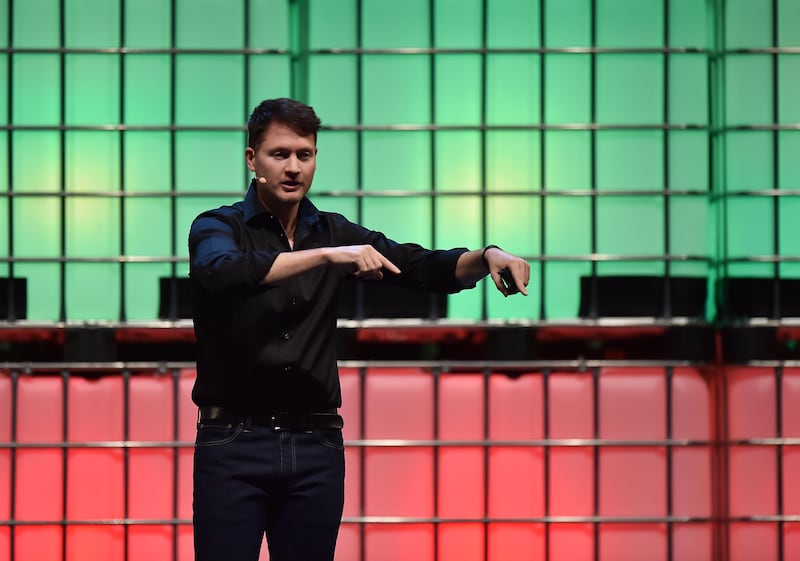Bryan Johnson, the entrepreneur on a mission to change how the human brain works, highlighted Saudi Arabia’s Vision 2030 during the opening of one of the biggest tech events in the world.
Mr Johnson made his fortune selling his payments company Braintree to PayPal for $800 million in 2013.
He has since plugged more than $100 million of his own money into his new venture - neuroscience startup Kernel.
On a mission to better understand the brain, Mr Johnson wants to get to the stage where we can then use that information to improve or ‘hack’ it in order to improve the human race and develop new ways of thinking.
“Everything we are, everything we build and everything we aspire to become stems from the brain so why is the brain such a blind spot in society?” said Mr Johnson.
He proposed a vision where a tool could interface with your brain which would allow you to feel what it’s like to be someone else, to understand their contextual framework, to see another person’s memories. He suggested this could change how humans interact and behave with one another.
“What if instead of destroying our enemies, we destroyed the concept of enemies,” posed Mr Johnson.
How this will be done, through a microchip inserted into the brain or another method of augmentation, has not yet been made clear by Mr Johnson.
Initially focusing on medical applications in order to understand why the brain sometimes fails, the end goal for Kernel is to augment the organ to make us smarter and healthier, with the potential for us to interact directly with computing devices.
Speaking in front of a crowd of 15,000 in Lisbon’s Web Summit, Mr Johnson alluded to a meeting with Crown Prince Mohammed bin Salman and a conversation about Vision 2030.
“I was recently in Saudi Arabia with a gentleman who was telling me about his 2030 goals for his country and I thought that’s amazing because that’s 13 years away and the world is going to change 100 times over between now and then,” Mr Johnson said.
Outlining how much of a challenge future planning is, Mr Johnson recalled the rest of the conversation, “I said let’s play a game here and let’s imagine we have a robot and we’re trying to get it to the far end of that sand hill over there. We program the robot and do a topographical map of the area… the problem with that plan is the moment the robot begins, the sand shifts and now the robot is stuck.
______________
Read more:
[ Big tech companies threaten our democracy, warns EU Commissioner Margrethe Vestager ]
[ Stephen Hawking: AI could be 'worst event in the history of our civilisation' ]
______________
“The better way to do it is to say we build the robot, we get the sand dune and we program the robot to respond in real-time to anything that comes its way so no matter how the sand shifts it can move to the end point. We as an end point need to become that adaptable and the key to becoming that adaptable is building a base line tool of technologies and cognitively intervening”.
He concluded, “In short, a revolution on the scale of something we have never seen is coming and it’s going to be on our front door steps in 15-20 years.”.
Compared to how rapidly AI is and will continue to develop, Mr Johnson told the audience he believes human ability has “flat lined” and proposes that the improvement of the human race should become the “number one priority”.
Reflecting on the comments made earlier in the evening by Stephen Hawking, who said artificial intelligence will make or break civilisation, Mr Johnson said he was more afraid of the potential of lone wolves who seek destruction than artificial intelligence.
“2017 kind of seems like the year where we all became a little frantic about the realisation that AI may take over the human race and I don’t think those concerns should be discredited. I think we should be very thoughtful on these things - at the same time I personally am much more concerned about human behaviour than I am about AI.
“The power for a single individual to create a bio-attack, to knock us off the electrical grid is devastating and we cannot let singular individuals create so much destruction in society.”.






